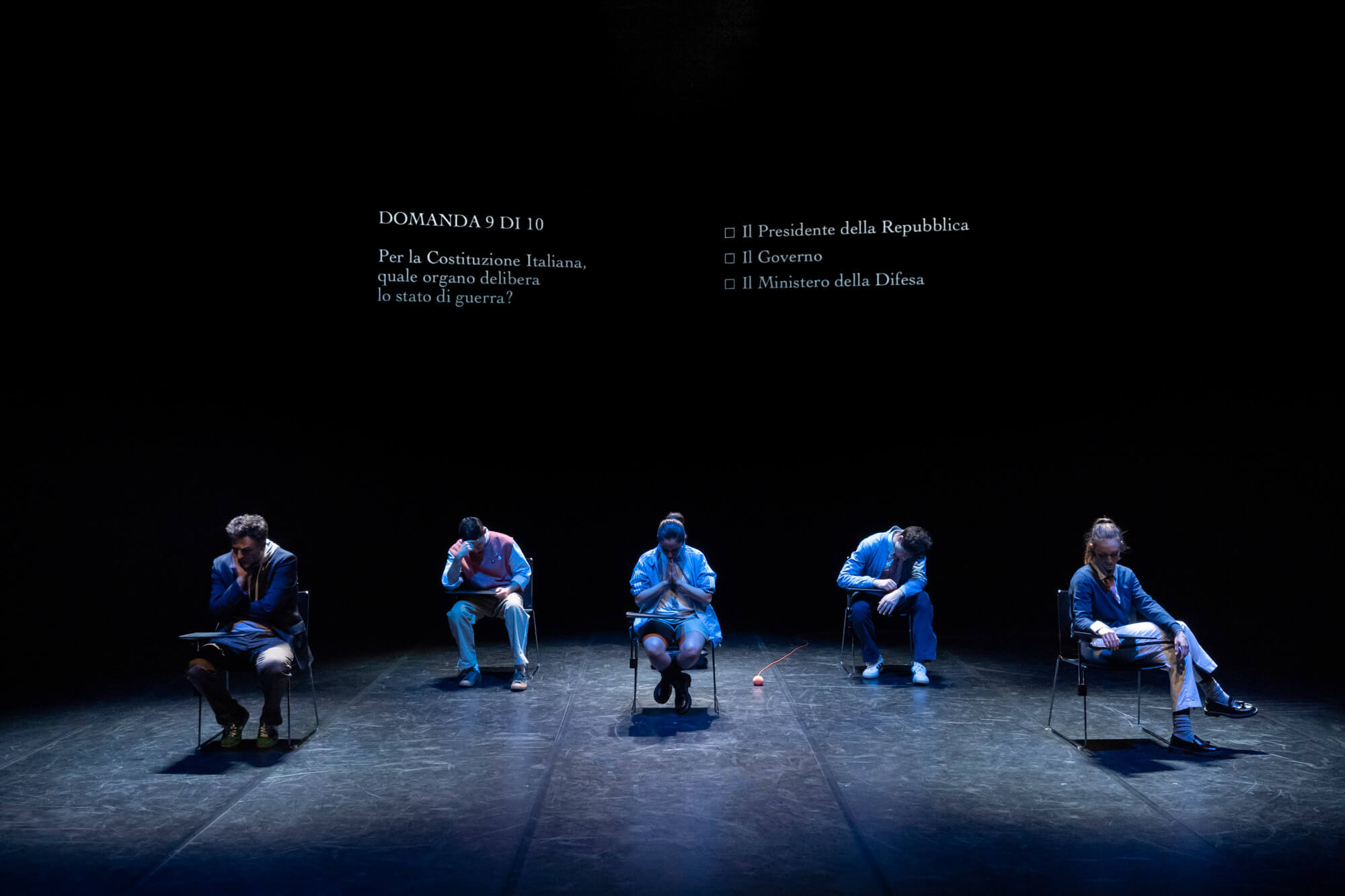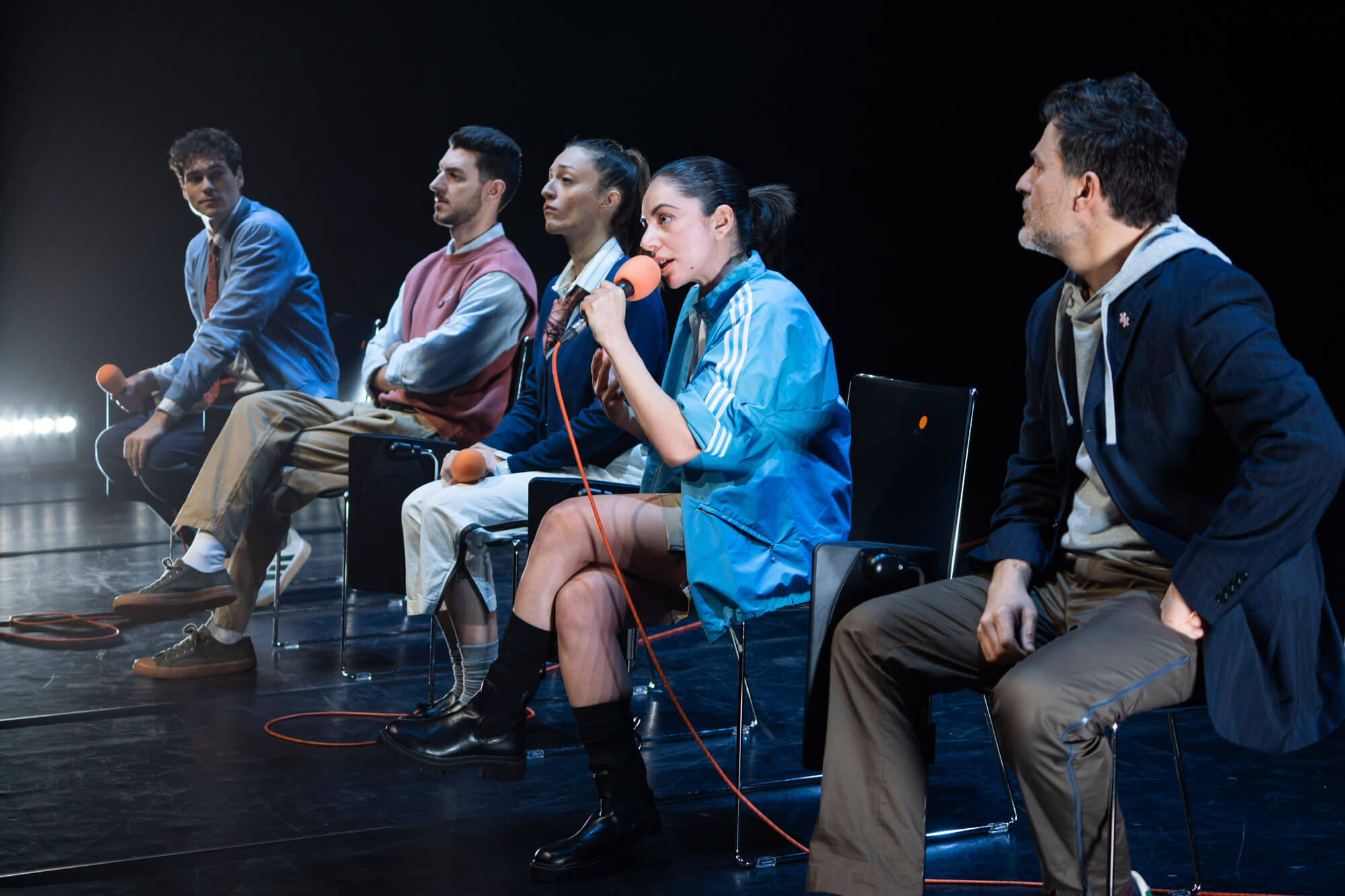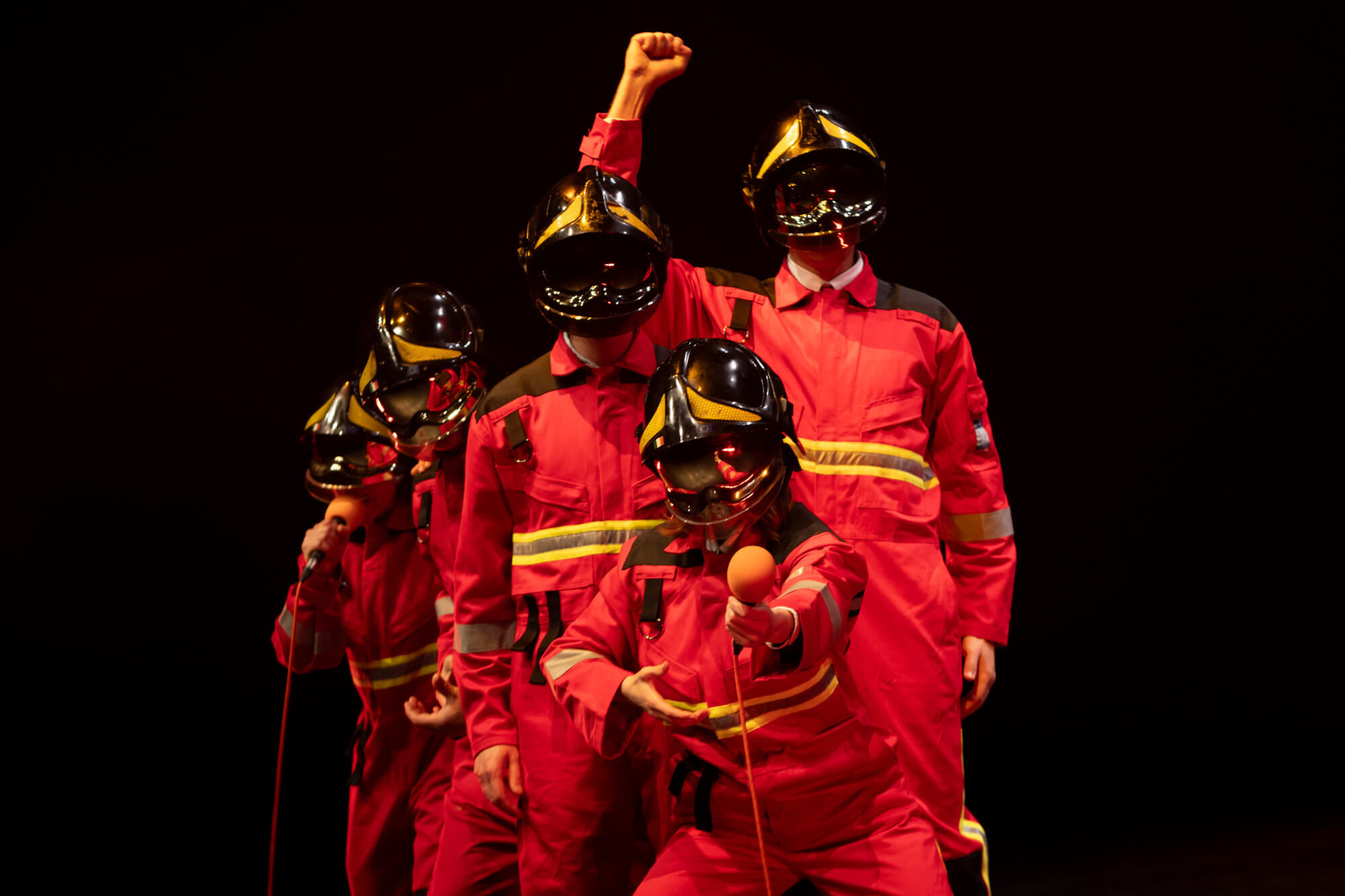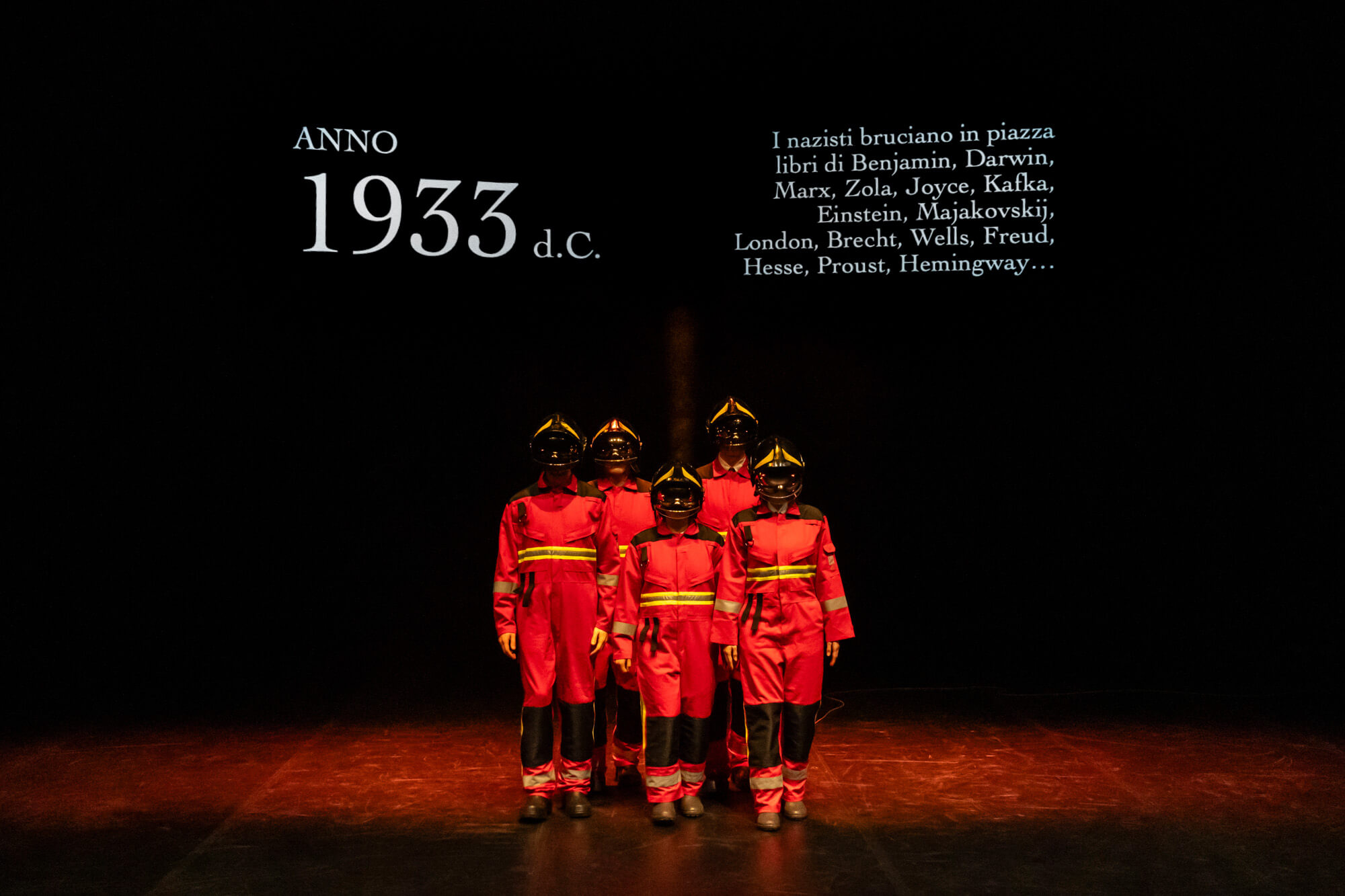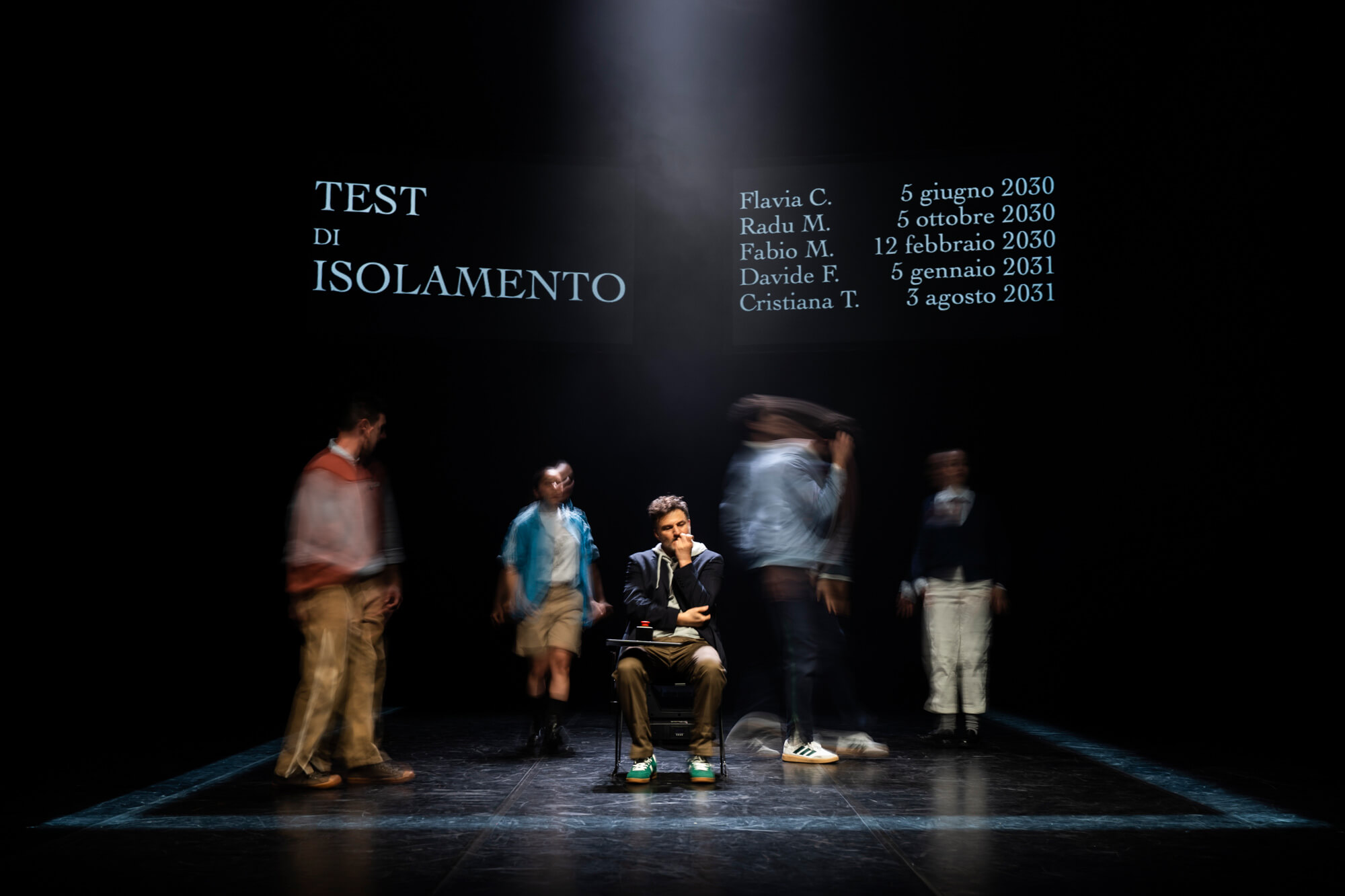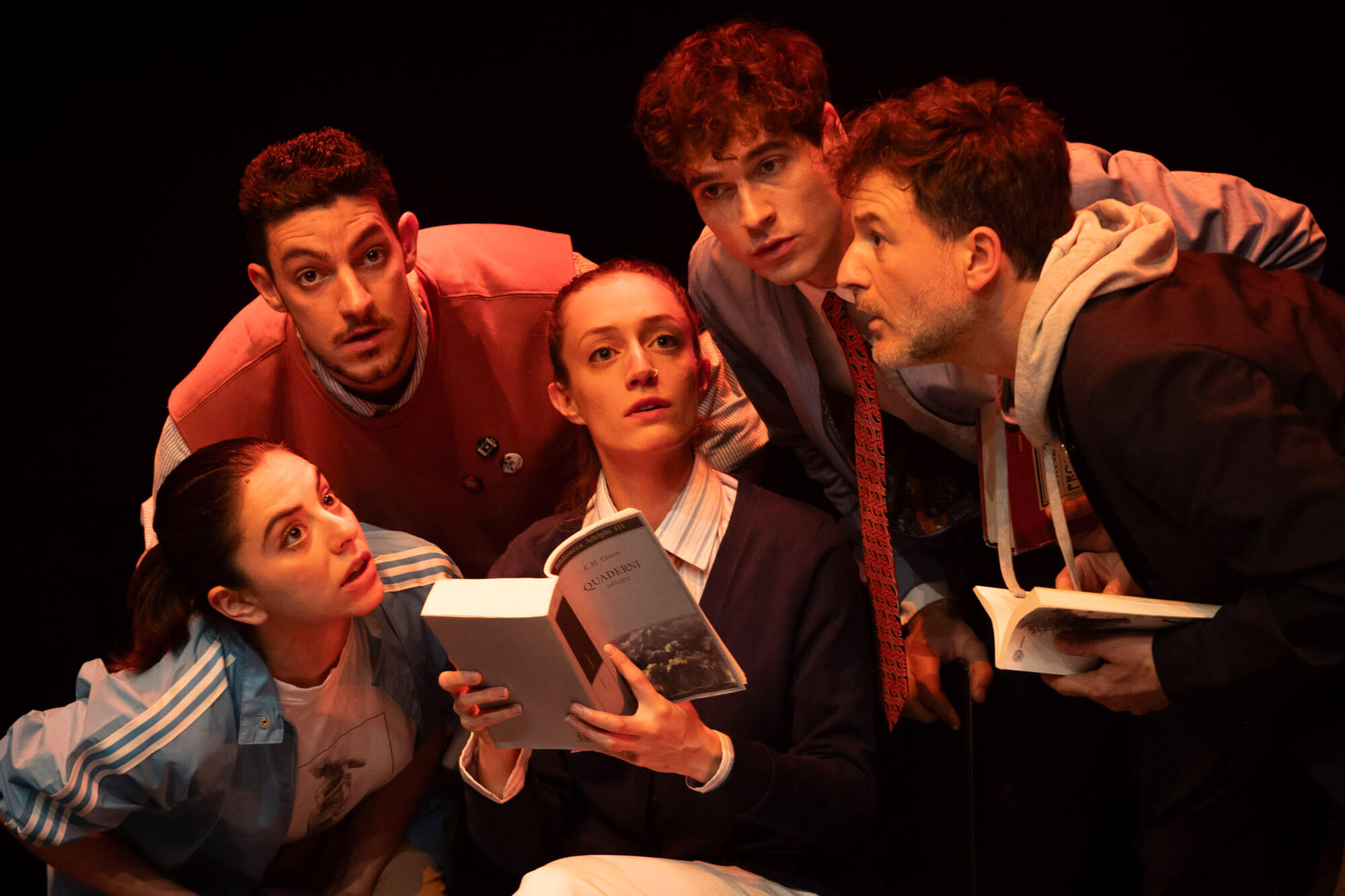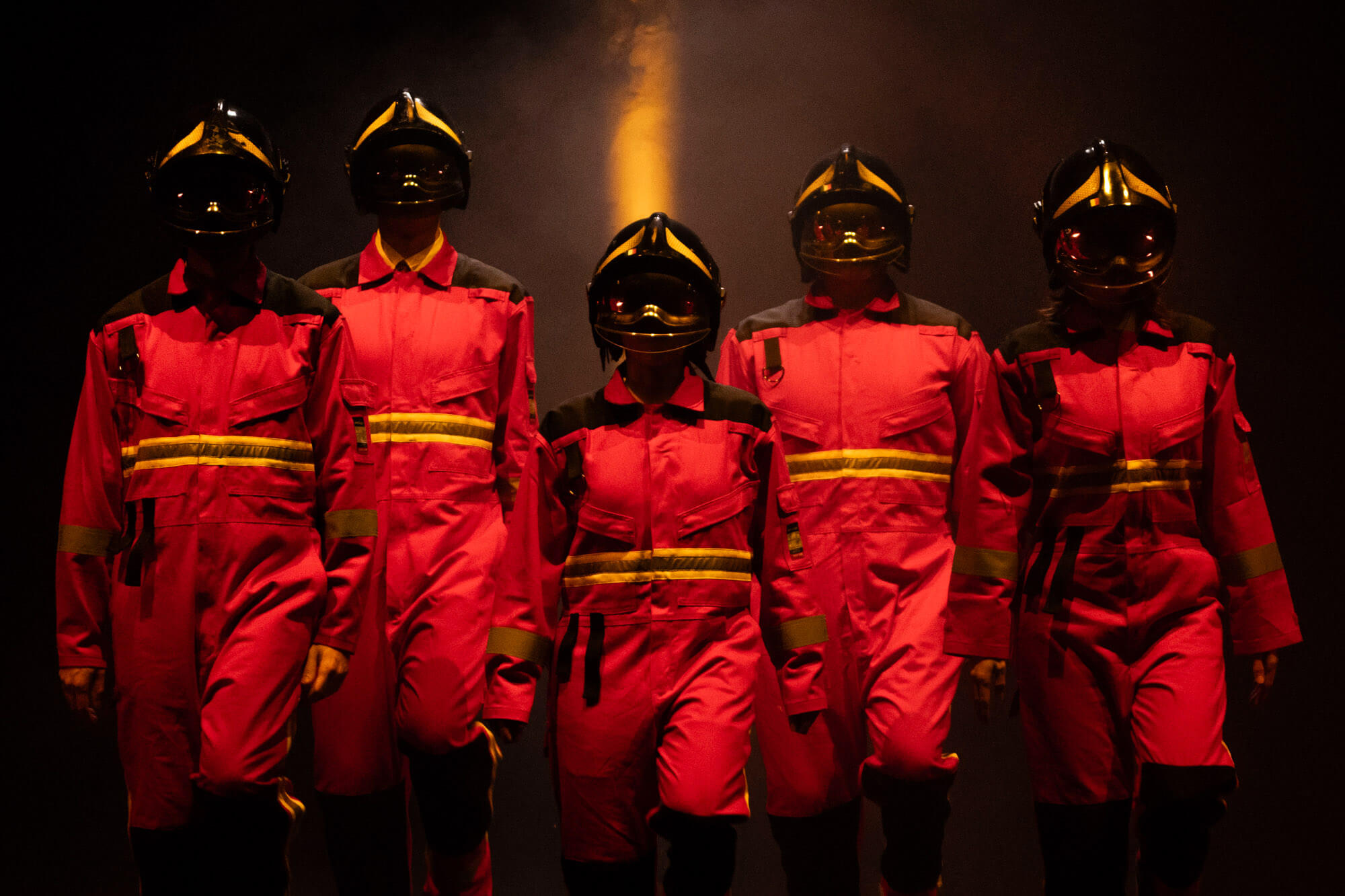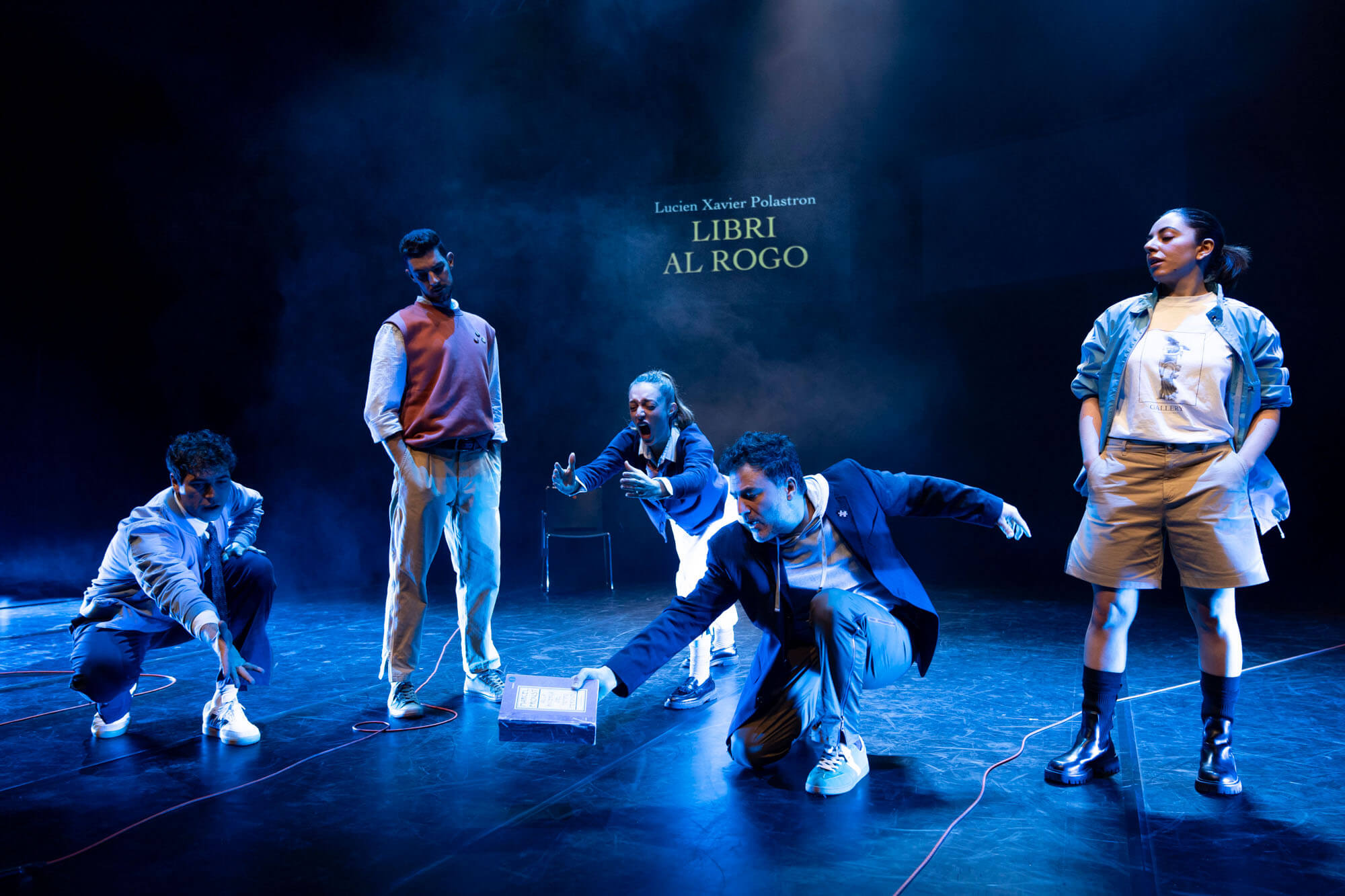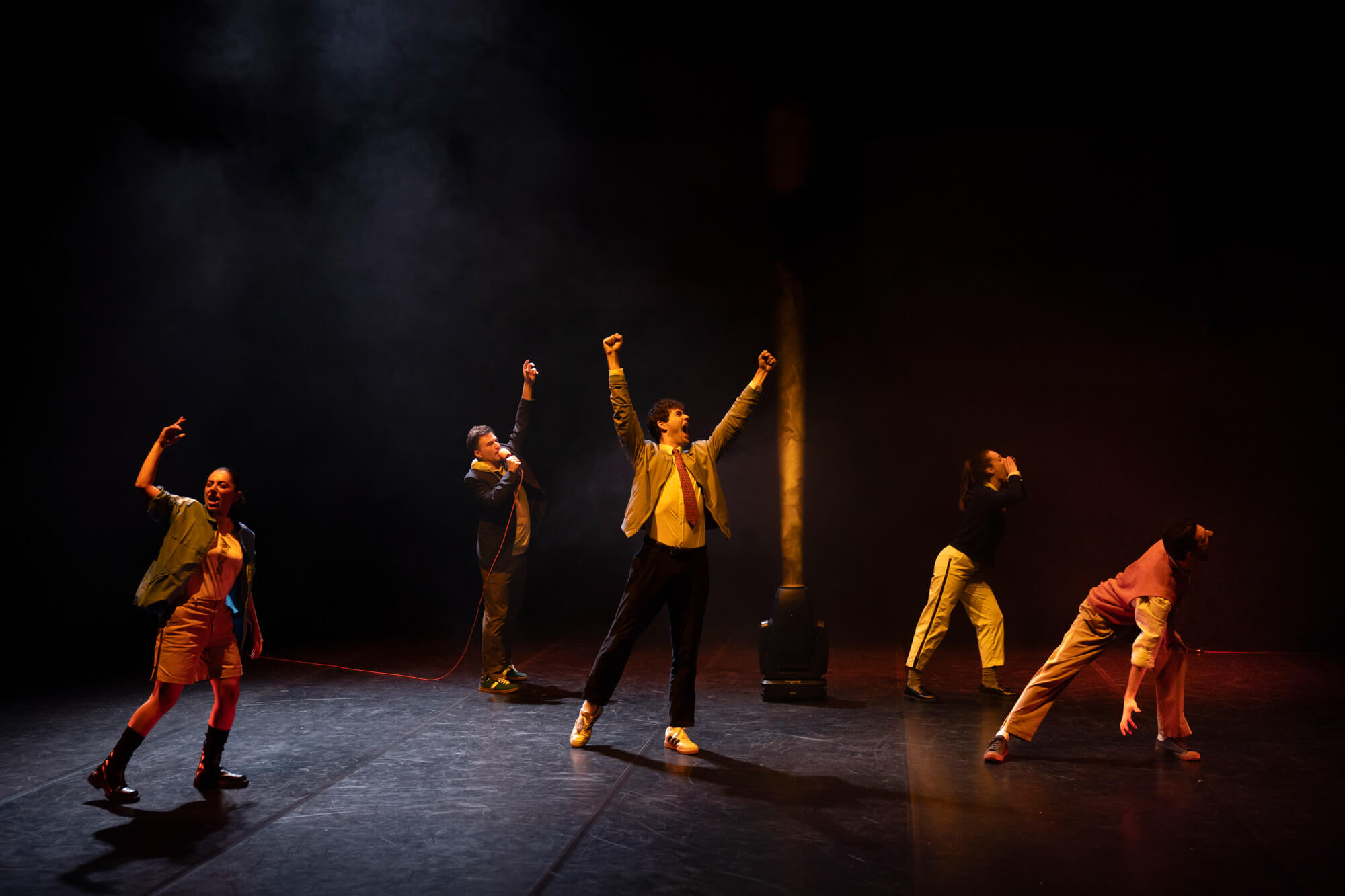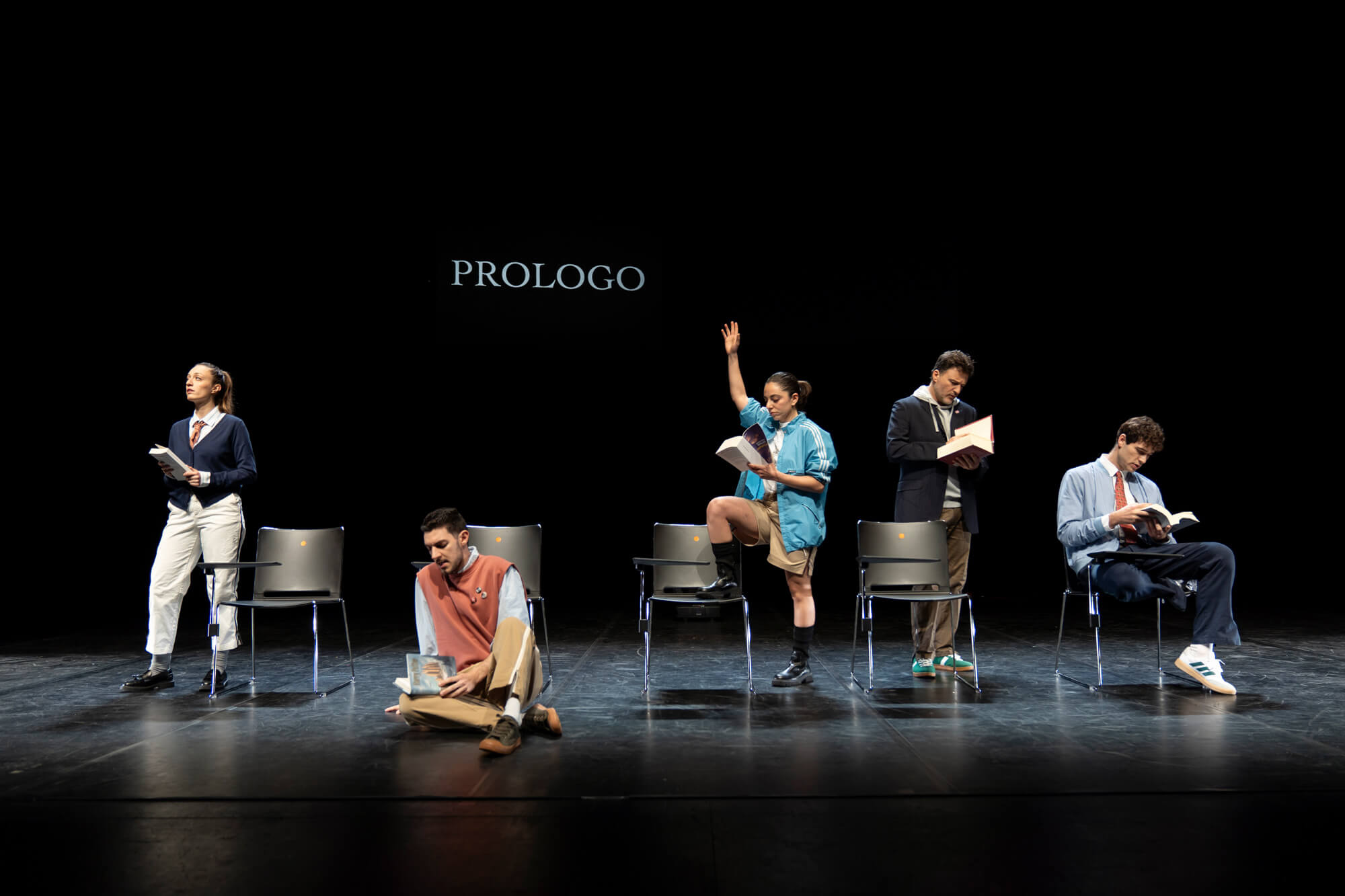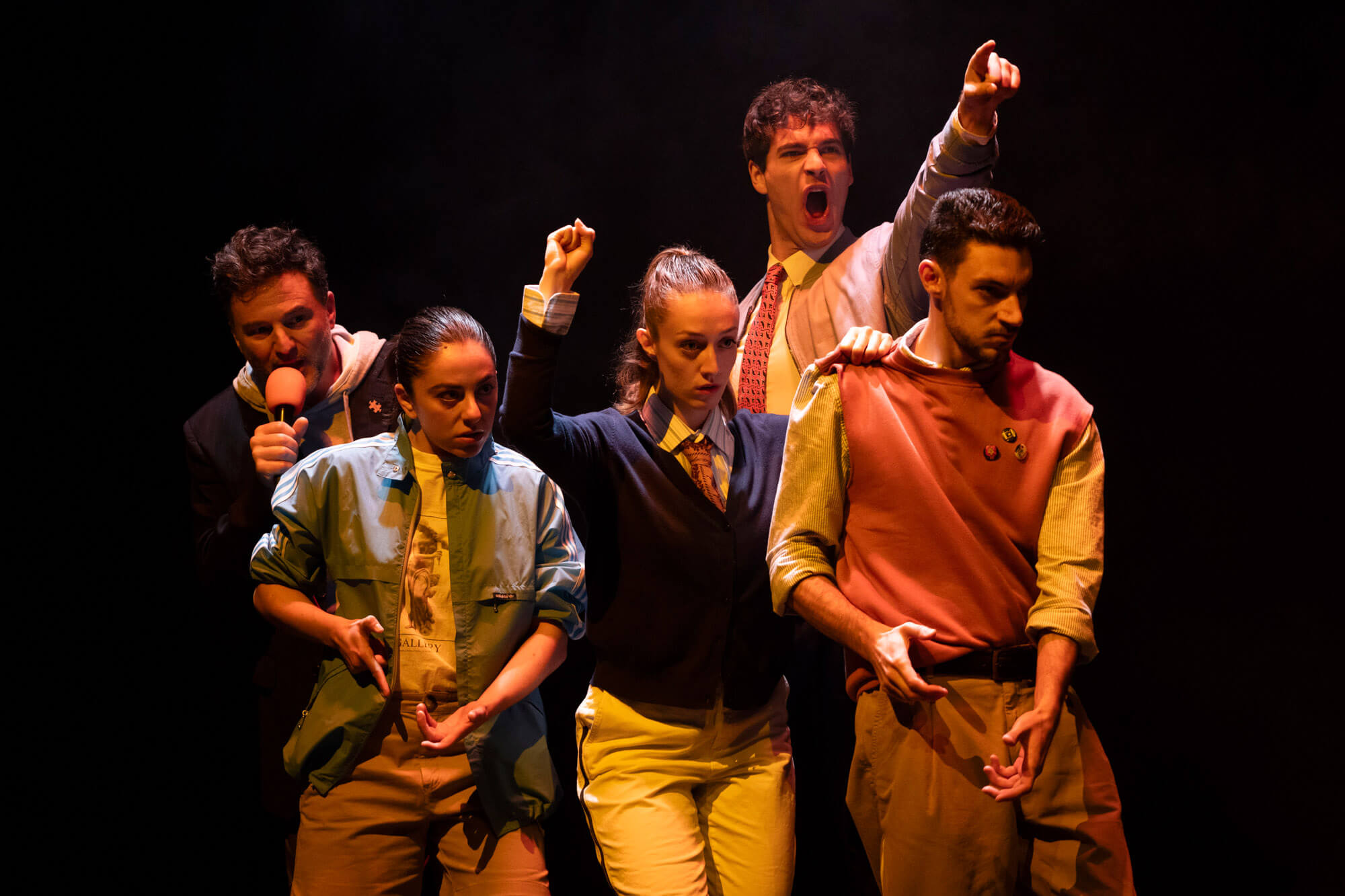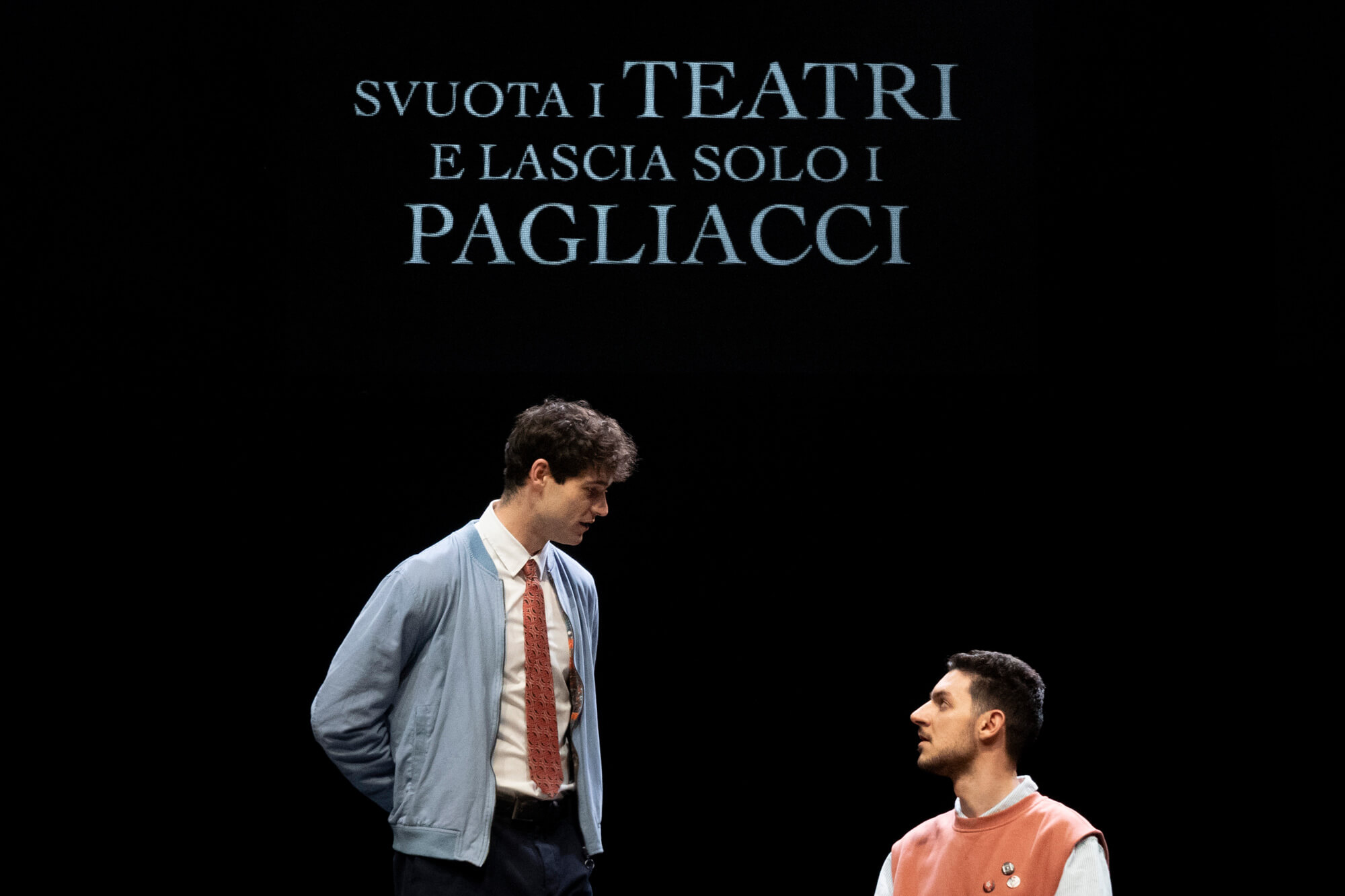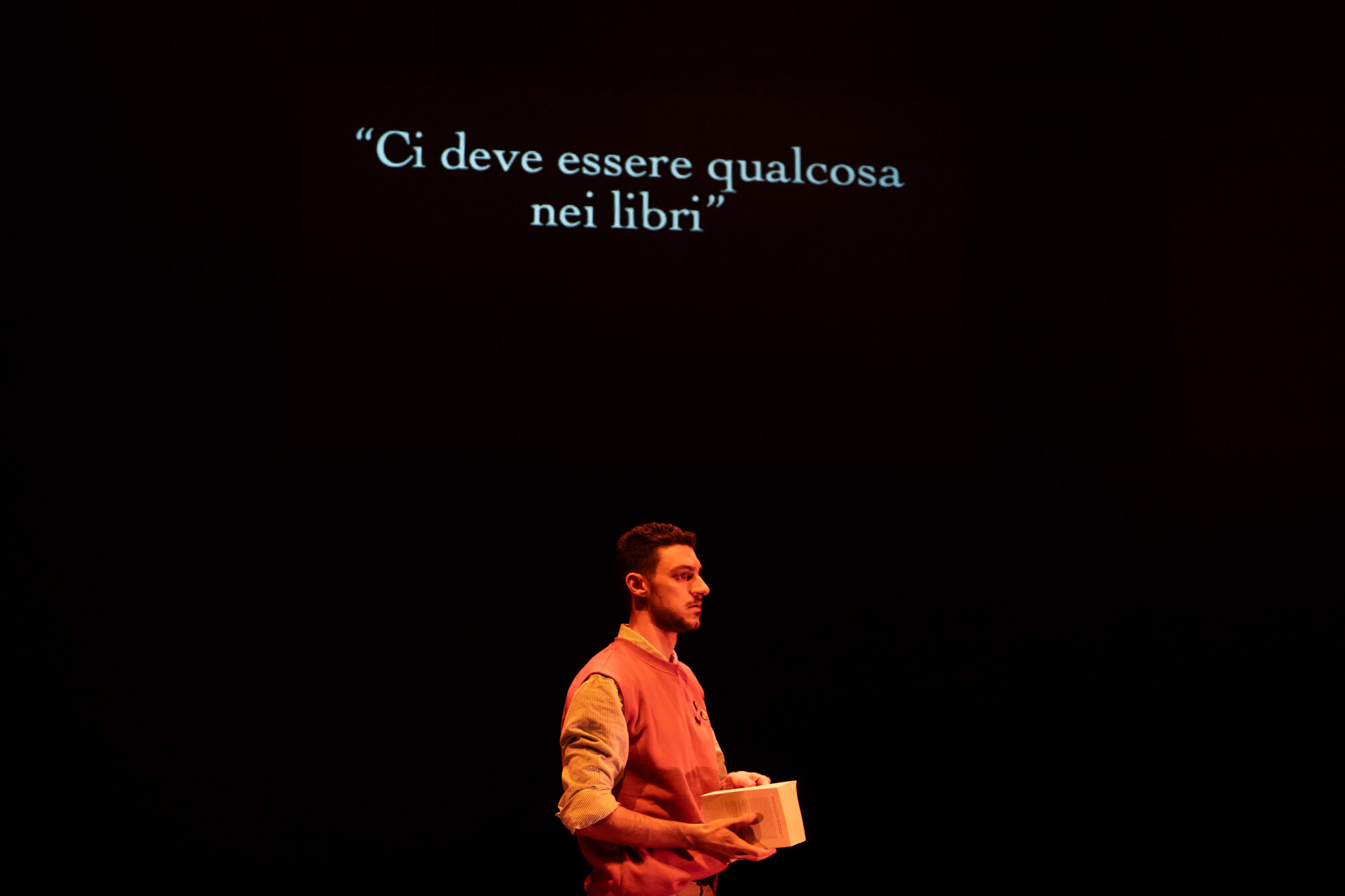Fire was the cure
IL FUOCO ERA LA CURA
liberamente ispirato a Fahrenheit 451 di Ray Bradbury“You don’t have to burn books to destroy a culture. Just get people to stop reading them.”
Ray Bradbury’s Fahrenheit 451 describes a dystopian future in which reading is forbidden, screens that are always on alienate people’s leisure time and the attempt to think causes physical discomfort. Ironically, the fire brigade is no longer employed to put out fires, but to burn books and, if necessary, their owners.
The book was published around 70 years ago, in 1953, but it is set in the future, that is, in the 1920s – which means today. But you are in the 21st century and you are reading this text, so was Bradbury wrong? It depends on how we understand dystopia: a prediction about the future that is at some point confirmed/denied or a warning about the present that keeps renewing itself?
Fire was the cure traverses and freely reinterprets Fahrenheit 451, consumes it as one does a beloved book, read a thousand times and dragged along to a thousand places, dirties it, forgets it somewhere and then finds it again, while the cover fades, the paper peels and the pages fill with notes, cards, bookmarks, and memories. Five performers retrace the story of the novel, identify with the characters, move horizontally, mapping the shadow cones, the things Bradbury does not explain or does not tell us, creating parallel narrative lines, theoretical deviations, also constructing the chronicles of an intermediate time between our present and a counter-cultural future in which stupidity saves us from the burden of complex thinking.
If Bradbury were only a few years wrong, if Fahrenheit 451 really happened, what would we do?
Credits
creation Sotterraneo
conception and direction Sara Bonaventura, Claudio Cirri, Daniele Villa
on stage Flavia Comi, Davide Fasano, Fabio Mascagni, Radu Murarasu, Cristiana Tramparulo
playwright Daniele Villa
lighting designer Marco Santambrogio
costume designer Ettore Lombardi
sound design Simone Arganini
coreographer Giulio Santolini
props designer Eva Sgrò
stage technician Monica Bosso
produced by Teatro Metastasio di Prato, Sotterraneo, Piccolo Teatro di Milano – Teatro d’Europa, Emilia Romagna Teatro ERT / Teatro Nazionale
supported by Centrale Fies / Passo Nord
residencies Centro di Residenza della Toscana (Fondazione Armunia Castiglioncello – CapoTrave/Kilowatt Sansepolcro), La Corte Ospitale, Centrale Fies / Passo Nord
Sotterraneo are associate artist at Piccolo Teatro Milano a member of the Fies Factory project and resident at Associazione Teatrale Pistoiese Production Centre
REVIEWS
Alessandro Iachino, Doppiozero
Graziano Graziani, Stati d’Eccezione
Simone Nebbia, Teatro e Critica
Renzo Francabandera and Matteo Brighenti, Pac Paneacquaculture
Nicola Arrigoni, Sipario
Rodolfo di Giammarco, La Falena
Mario de Santis, Huffington Post
IL FUOCO ERA LA CURA Trailer
GALLERY
ph. © Masiar Pasquali courtesy di Piccolo Teatro di Milano
TOURING
2024
Il Fuoco Era la Cura
Teatro Fabbricone, Prato
Piccolo Teatro, Milano

 Italiano
Italiano
